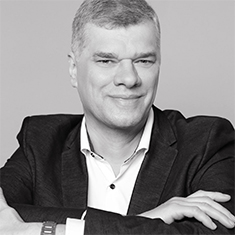-
Cardiology procedures and examinations 14
- ABI test
- Cardiac health assessment package
- Cardiac stress test (on a stationary bicycle or a treadmill)
- Cardiac ultrasound (echocardiography)
- Central blood pressure and artery examination
- Electrocardiography (ECG)
- Heart health assessment PLUS-package
- Hotman's®-test
- LDL cholesterol test
- Pacemaker check and programming
- Risk assessment examination of cardiovascular diseases
- Tilt table test
- Twenty-four-hour Holter-monitoring of arrhythmia
- Twenty-four-hour Holter-monitoring of blood pressure
- Dermatological procedures and examinations 8
- Ear, nose and throat procedures and examinations 2
- Gynaecological procedures and examinations 8
-
Vaccination 19
- Vaccination against tick-borne encephalitis
- Employee health check certificate for infectious diseases
- Vaccination against chickenpox (as of 12 months old)
- Vaccination against diphtheria, tetanus, whooping cough
- Vaccination against hepatitis A
- Vaccination against hepatitis A and B (>16 y/o)
- Vaccination against hepatitis B
- Vaccination against HPV
- Vaccination against measles, mumps and rubella (MMR)
- Vaccination against meningococcal disease
- Vaccination against pneumococcal disease
- Vaccination against poliomyelitis
- Vaccination against rabies (upon ordering vaccine)
- Vaccination against rotavirus
- Vaccination against SARS coronavirus
- Vaccination against SARS coronavirus for children
- Vaccination against the flu
- Vaccination against typhus (as of 2 y/o)
- Vaccination against yellow fever
Pacemaker check and programming
Look for appointment timesA pacemaker check allows the physician to assess the performance of the cardiac pacemaker and, if necessary, make changes to its technical configuration to ensure the optimal operation of the pacemaker. The procedure of checking a cardiac pacemaker is painless. A sensor is placed on the patient’s shoulder below the collarbone (in the area where the pacemaker is positioned) to check the performance of the pacemaker. During the check, a programmer can be used to change the technical parameters of the pacemaker. The pacemaker check lasts 20 minutes and is performed by Dr Hasso Uuetoa.
Service providers
Price
Pacemaker check and programming
We have several payment options. Read more HERE.

